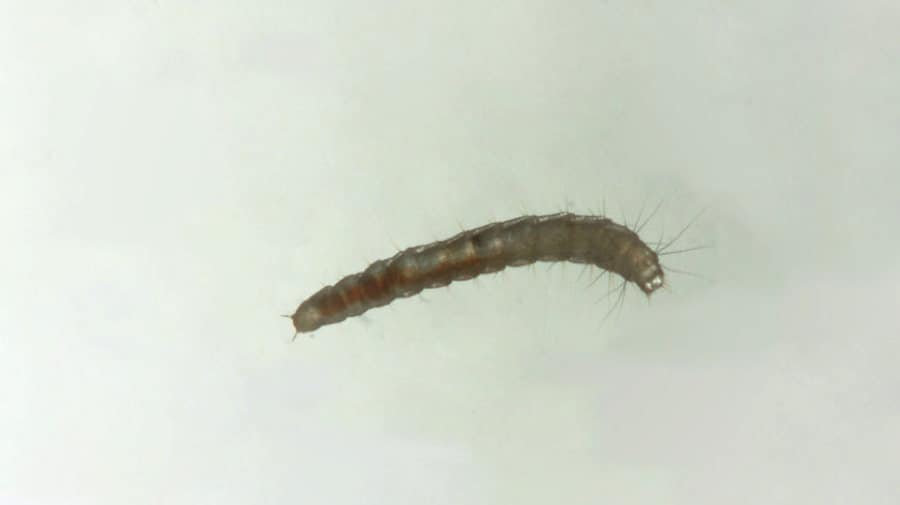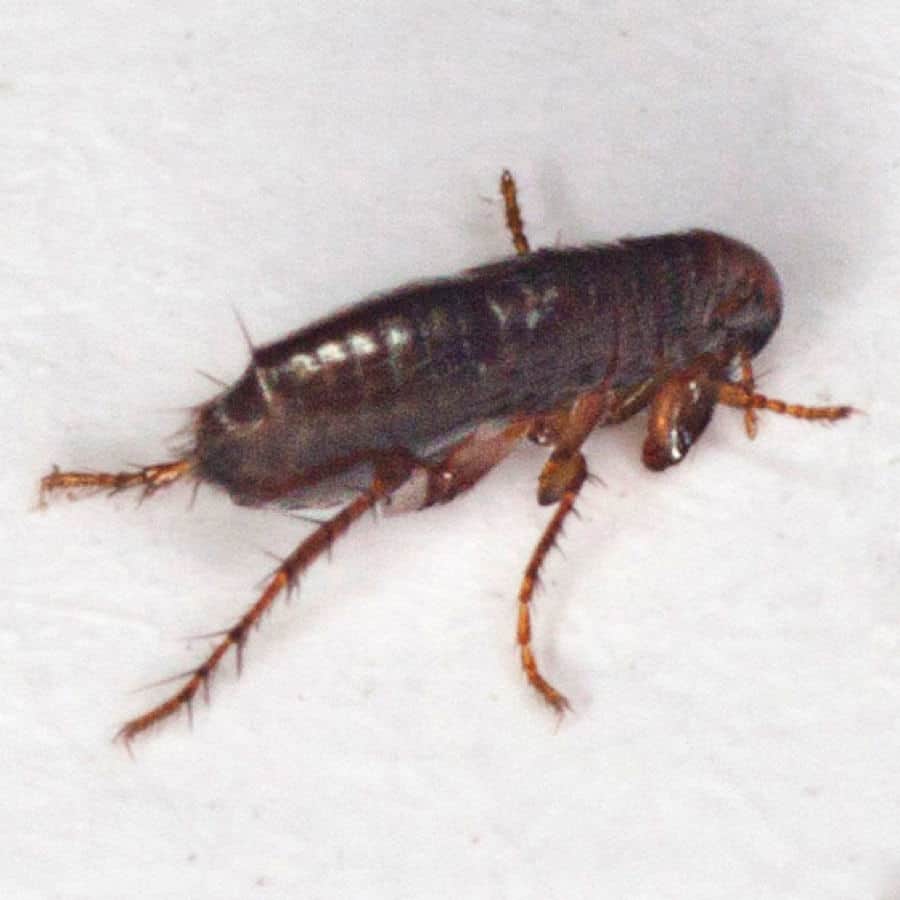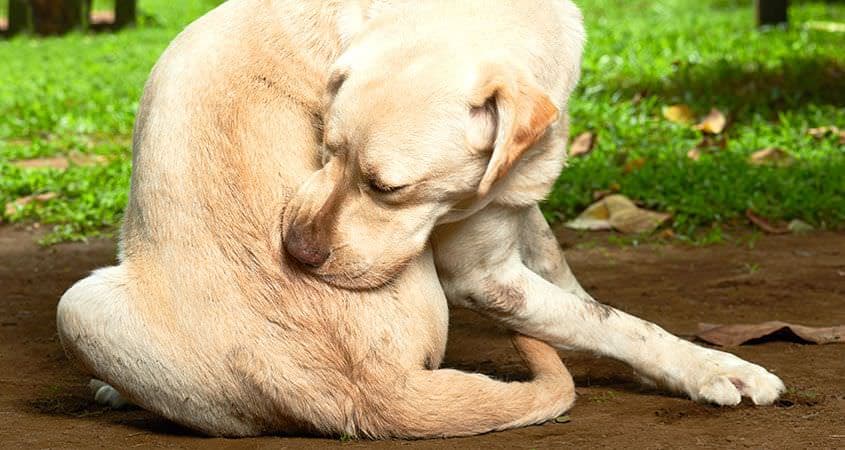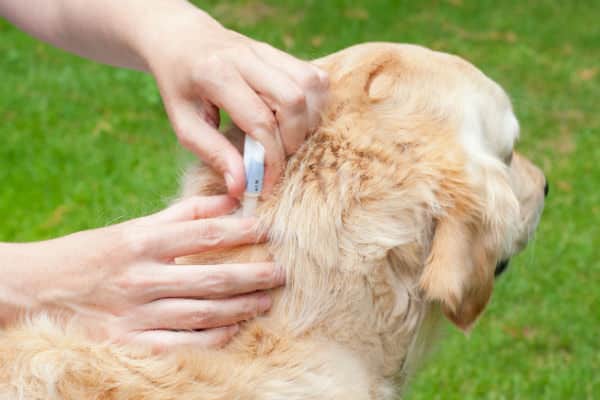Does Apple Cider Vinegar Kill Fleas?
Fleas are a real nuisance in any home. They bite both us and our pets, feeding upon our blood, causing severe itching and irritation. In some cases, our furry friends can chew and scratch themselves raw trying to rid themselves of these nasty parasites.
While there are a large number of flea treatments on the market, very often these contain harsh chemicals which can further upset your pets, especially if they have sensitive skin.
For those who wish to avoid pesticides, apple cider vinegar can be an effective household alternative in the battle against fleas. In this article, we take a look at the best ways to use apple cider vinegar to get rid of fleas.
Does Apple Cider Vinegar Kill Fleas?
Adult fleas will choose to prey upon their host for the entire duration of their lives. They must have continual access to a blood meal in order to breed, reproduce and survive. They will feed multiple times a day and the females must have fed within the last 24 hours in order to mate and increase egg production.
Apple cider vinegar doesn’t kill adult fleas, but it is extremely unpleasant to them. Fleas despise the smell and taste of apple cider vinegar, so will not wish to remain on the host.
It is a useful alternative to chemical repellents which can irritate the skin or cause side effects. Therefore, while apple cider vinegar is an incredibly effective repellent, remember that it will not kill fleas directly.
However, the fact that fleas will leave the host is important. Fleas cannot survive without a blood meal for very long in normal environmental conditions. This means that by eliminating their host with apple cider vinegar, the fleas who were resident upon your pet are most likely to starve and die.
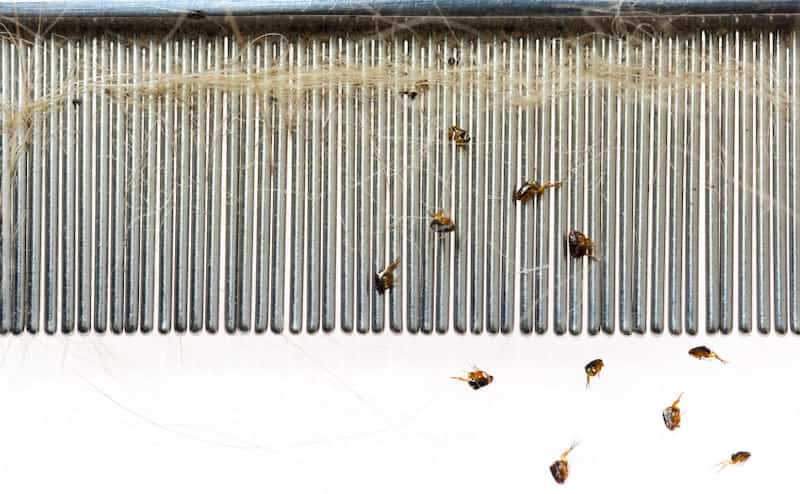
However, there is a greater chance that humans in the household will then be bitten by these fleas, as they are no longer living and feeding upon your pet. This can be avoided by using an insect repellent to deny them a blood meal from you and your family too.
Will Apple Cider Vinegar Kill Flea Eggs?
Just as apple cider vinegar will not kill adult fleas, it will not kill flea eggs. However, the use of apple cider vinegar in repelling fleas from your pet can vastly reduce the pace at which the population will grow.
This is because fleas need to be constantly feeding to be fertile. The metabolic rate of female fleas increases to allow them to produce eggs. As a result, this new rate of energy consumption needs to be sustained by frequent feedings to continue.
If the blood supply from the host becomes unavailable, an actively reproducing female flea will die within 24 hours, thus stunting the production of viable flea eggs.
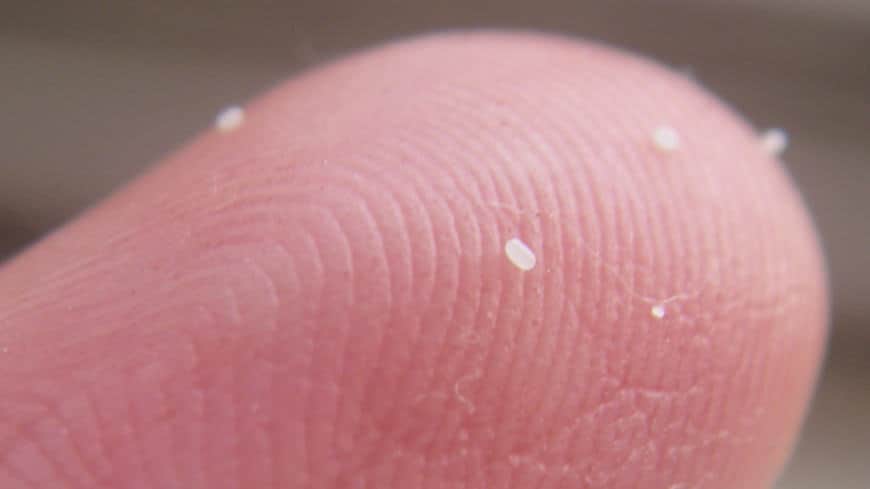
Furthermore, even if these fleas begin to feed upon human residents in desperation, they cannot breed at the same pace when they are forced to feed upon human blood. This is because human blood is basically considered a last resort to prevent starvation and is not the correct diet to support normal fertility.
So at the very least, the use of apple cider vinegar will greatly reduce the pace at which the population of fleas can expand, giving you time to tackle it before it becomes a severe infestation.
How to Use Apple Cider Vinegar Against Fleas
Fleas are an ongoing risk to pets, especially those who like to go outside and explore. Once they have settled upon your pet, they will begin to feed right away, gorging themselves to full capacity as soon as they can to prepare for breeding.
The bite of fleas will cause you and your pet extreme irritation, even resulting in an allergic reaction in some cases. The reason flea bites are so irritating is down to a chemical in their saliva.
This chemical acts to soften the skin so they can readily bite through, as well as prevent the blood from clotting to prolong feeding. The chemical causes the immune system to react defensively, resulting in the swelling, itching, and irritation which drives your furry friend crazy.
When it comes to stopping the itch and preventing these bloodsuckers from feasting on your pet, there are a number of products on the market to choose from. However, many people understandably prefer to avoid chemical treatments which can cause further irritation and unwelcome reactions in their pets.
This is where apple cider vinegar can be a good alternative. It has been used for centuries as an effective insect repellent, as well as in many other home-based treatments. It can be used to efficiently remove fleas from your pet’s coat, as well as prevent any more fleas from choosing to take up residence.
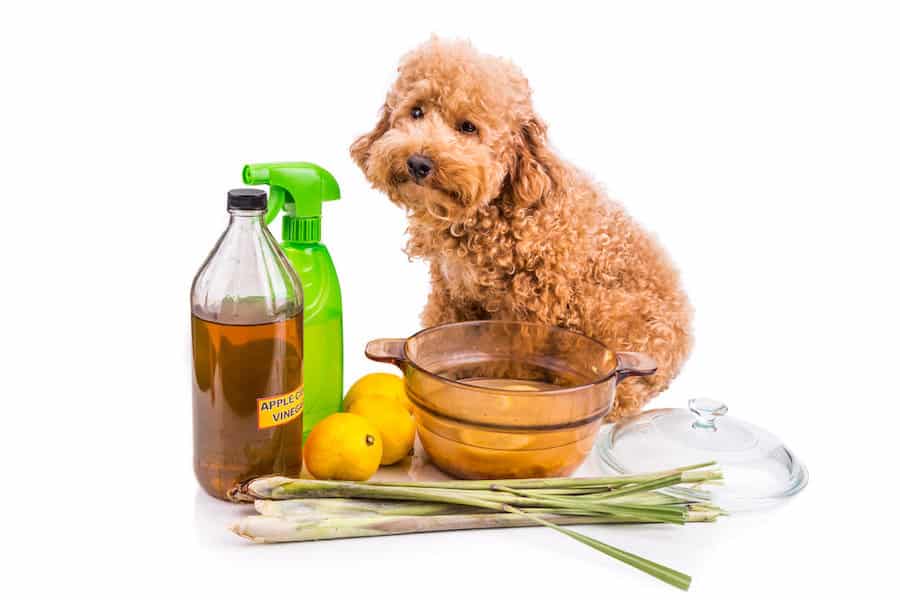
One good method is to use an apple cider vinegar rinse on your pet. Start by using a pet shampoo which is safe for your dog or cat, and follow the instructions provided. When the suds have been thoroughly rinsed off, you can apply the apple cider vinegar rinse.
Important: Make sure you dilute the apple cider vinegar correctly, otherwise it can be too strong and irritate your pet’s skin.
Mix equal amounts of warm water and apple cider vinegar together, ensuring that the water is not too hot for your pet. Pour the solution over your pet, starting at the head. Be careful not to get any in their eyes, ears, or nose. Slowly and carefully, continue to pour the solution over their body, moving down from head to tail. This is to ensure you are “chasing” the fleas across the body and they do not climb up to hide on the head.
Once you have thoroughly covered your pet, towel-dry them without rinsing. If you see any fleas, squash them with your fingers or a tissue and flush them away. Keep an eye on your pet to make sure they are not irritated by the apple cider vinegar rinse. If they are not happy, maybe they are too sensitive. If this is the case, rinse them well with water and consult your vet.
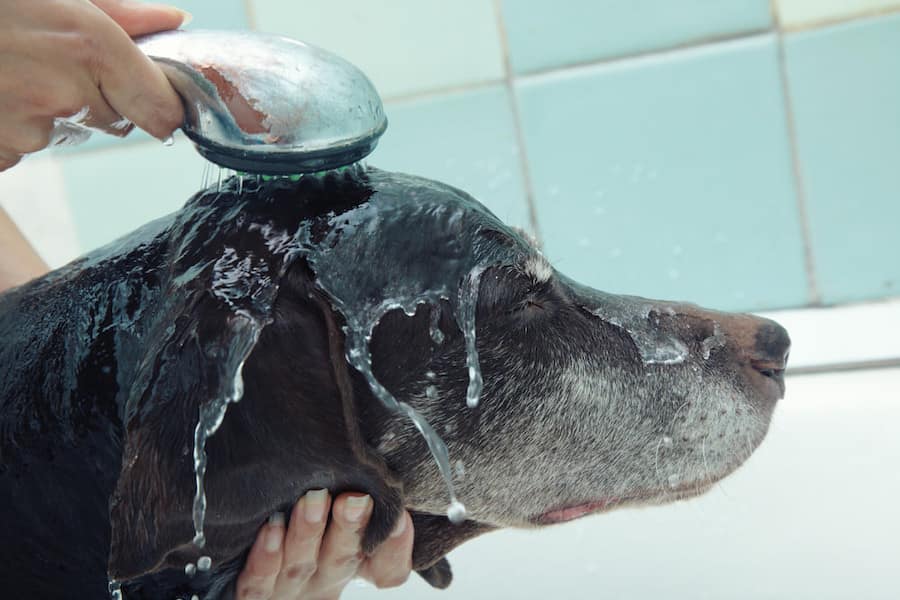
If your pet doesn’t like the bath, you can also mix 1:1 water and apple cider vinegar in a spray bottle and spray across your pet’s fur, using a brush or comb to make sure you are covering them fully.
Another way to repel fleas with apple cider vinegar is to add it to your pets’ water. The theory behind this is that the apple cider vinegar changes the pH level of the blood, making it unpalatable to fleas. This hasn’t been clinically proven, but many pet owners claim to have had success with this method.
Some animals will be understandably unsure about their water if it starts to smell or taste differently, so it will not necessarily work for everyone.
Start by adding a drop or two to the water bowl, gradually building up to a teaspoon per quart of water in the bowl. Pay attention to whether your pet is drinking as much as usual, as well as their bathroom habits. This will tell you whether they are happy with the taste and if it is irritating their stomach or not.
Lastly, apple cider vinegar can be used to treat fabrics and pet bedding in the home which may harbor fleas. All you need to do is soak the sheets, bedding, and any soft toys in the water and vinegar solution ratio of 1:1.
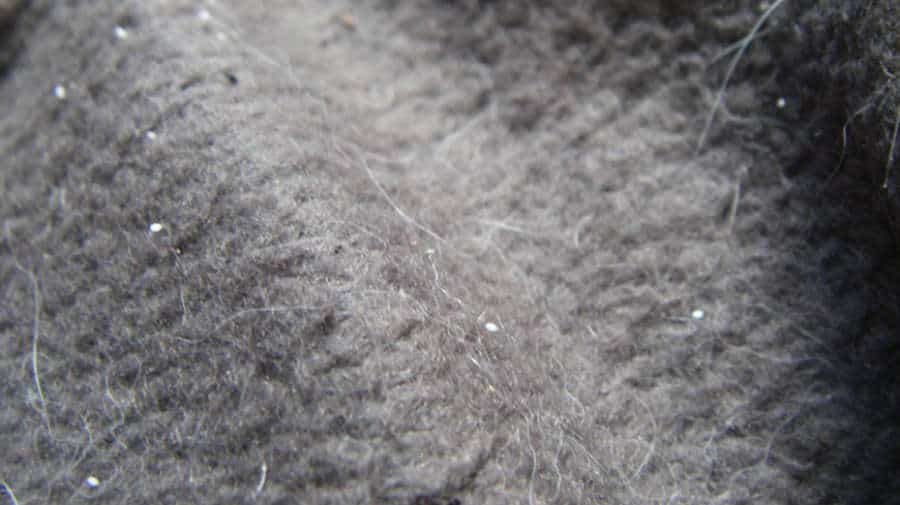
Allow the fabrics to soak for a good few hours before air drying, or putting on the highest heat possible in a dryer, to kill any eggs which may be hiding there. You could also regularly spray bedding with the spray bottle option, to deter fleas from settling in there.
Summary
Apple cider vinegar can be an effective and natural alternative to flea control for both your pet and your home. It’s cheap, chemical-free, and often found in many household cupboards; which makes it a convenient choice of flea repellent.
Furthermore, apple cider vinegar is a great solution for those who wish to avoid strong pesticidal treatments that can irritate your pet, or cause nasty side effects in sensitive animals.
As long as you use apple cider vinegar in the correct dilution, and are mindful of your pets’ reaction, we are confident that apple cider vinegar will leave your pet feeling content and itch free.

